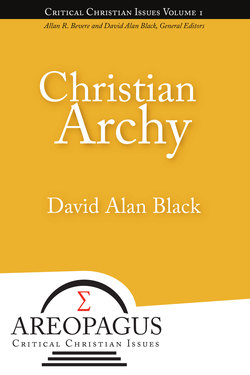Читать книгу Christian Archy - David Alan Black - Страница 7
На сайте Литреса книга снята с продажи.
Chapter 1:
Introduction
ОглавлениеThere is perhaps no clearer example of the church’s misguided appropriation of the world than the god of nationalism. Instead of simply following Jesus, whose kingdom is marked by powerless love, we have attempted to use Christianity to support worldly power. And this means that the church has lost its way — a transgression that carries with it an obligation on the part of every Christian to find his or her way back to the correct path. Experience has shown that once the church has become just another worldly “archy” (power), once it has allowed itself to be subverted by politics, it has achieved a “victory” at the expense of the Gospel.
This is the message of two profound Christian thinkers whose writings impacted a previous generation of Jesus followers. It has only been recently that I added the works of Jacques Ellul and Vernard Eller to my library shelves, and their contribution to what they call “Christian Anarchy” has played no little role in the writing of my latest book, The Jesus Paradigm. Picking up on something Kierkegaard once said, these philosopher-theologians remind us that the Gospel is something intolerable, for it requires us to renounce the illusions, the misplaced hopes, and the blind cul-de-sacs of religious archys. “Christendom,” wrote Kierkegaard, “is an effort of the human race to go back to walking on all fours, to get rid of Christianity, to do it knavishly under the pretext that this is Christianity, claiming that it is Christianity perfected” (cited in Ellul, The Subversion of Christianity, p. 1). This is not all. “The Christianity of Christendom,” continues Kierkegaard, “transforms Christianity into something entirely different from what it is in the New Testament, yea, into exactly the opposite; and this is the Christianity of Christendom, of us men.”
The tragedy is that Christians have freely chosen this course of action. They have voluntarily opted for Christendom over Christianity. They have willingly forsaken the Holy Spirit for holy orders, the Body of Christ for a body of worldly ideals, the kingdom of heaven for the kingdoms of this world. As I argue in my new book, I am convinced that this “subversion of Christianity” (the title of one of Ellul’s books), this matter of putting our petty gods above Christ, has caused the church to totally miss its way. It is only when we exalt Christus Victor, when we believe in Christ crucified and risen again, when we acknowledge that whatever substitutions for Christianity we have allowed are nothing but false Christianities, that we can make any headway.
The description of our problem — and its distinctly biblical solution as set forth by Ellul and Eller — though obvious to anyone who has read their works, is unfortunately not well known today or, if it is, is rejected partly because it is known as “Christian Anarchy,” a term that to many has an exceedingly negative connotation. It is here, of course, that Christian theologians have a major role to play in fleshing out these works, but many have not understood that role because (in my estimation) they do not get beyond the nomenclature to the substance of Christian Anarchy. Some have even lent their support to the foolish and utopian ideas of Christendom, seeking the goodness of the Lord in the “wonder-working power” of the American people, to paraphrase a recent U.S. president. Such pom-pom waving allegiance to the American flag and U.S.-style democracy is no more than one of the ways in which Christendom seeks to “transform Christianity into something entirely different from what it is in the New Testament” (as Kierkegaard said). When the Christian church behaves like this, and when its theologians go along with it, it utterly fails to be the light of the world and the salt of the earth, overcoming evil with good.
There is, therefore, a need for the church to rediscover its failure to plant the cross at the heart of its identity as church, and thus for the church to be reborn through the seed of evangelical truth. By way of impudent generalization, I will attempt in this book to describe the way forward. It seems to me, from my reading of Ellul and especially Eller, that we can discern three processes, three movements in this symphony of truth that I will now call “Christian Archy.” I think that we have in this symphony an explanation of the astonishing change that brought Christendom into existence out of Christianity, even though the biblical revelation lends the exchange absolutely no support. From this point on, then, let us briefly examine Christian Archy and see whether it can help us to better understand how the church has been subverted and how it might be reconstituted along biblical lines. It is absurd to think that my synopsis is either sufficient or efficient for this to occur. At the very least, my hope is that my audience will feel compelled to “take up and read” for themselves the provocative works I am merely trying to summarize here (see For Further Reading).
